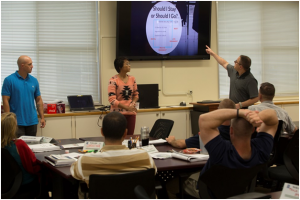In turbulent financial times and with stubbornly low-interest rates, many people are unhappy with their financial advisers and the returns they are earning on their investments. Surprisingly, a little like our bank accounts, investors seem reluctant to switch to a new firm.

There can be many reasons for this, such as an inherent resistance to change in financial matters, the length of the relationship, or even the personal nature of it. Whatever the reason, it may be time to treat this relationship in the same way as the one with utility suppliers and think about switching.
Pension contributions
A starting point is to look at the Financial Services Register, which is a public record listing of individuals, firms and other bodies regulated by the FCA or PRA.
It is important to begin the search before you cut any ties with your current advisor. You do not want to disrupt any contributions you currently make to accounts, especially those related to pension provision.

Once your search is underway, consider the most important information you need when contacting a potential new adviser. This will include costs and fees, some background on the company, and information about the individual who is likely to be your contact. Check their qualifications and compare them, along with the fees, with your existing adviser and other new prospects.
Small shortlist
Ask how they will contact and report on your account to you and how often this is likely to happen. You will want to be able to access some information and statements online and to reassure yourself that the firm is using the latest software for financial advisers from a provider such as intelliflo.com/financial-adviser-software.
A face-to-face meeting with the potential new advisers is the next step once you have a shortlist. This will enable you to cement the choice of the individual within the firm who will be your point of contact and gather first impressions. Schedule a second meeting once you have narrowed down your options.
Learn from the fault-lines in your relationship with your previous adviser. Discuss these with your new adviser – if you make sure they are not repeated, your returns will hopefully improve. If you make it clear what your requirements are, you will get the best possible service from your new adviser

